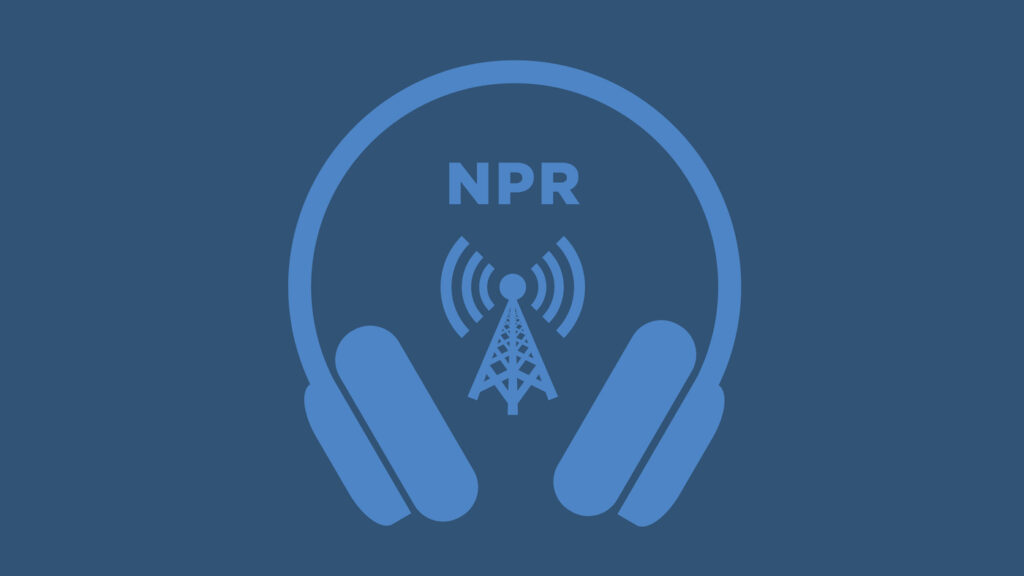Medicaid programs go by so many different names across the country that advocates and experts warn people may not know they’re losing their coverage until it’s too late.
AILSA CHANG, HOST:
An estimated 16 million Americans could lose their health care coverage between funding cuts and policy changes in the federal reconciliation bill. That’s according to a nonpartisan government analysis. About half of that loss is expected to come from changes that could lead to hundreds of billions of dollars in Medicaid cuts. Indiana Public Broadcasting’s Abigail Ruhman reports that advocates and experts warn people may not know they’re losing their coverage until it’s too late.
ABIGAIL RUHMAN, BYLINE: Tracey Hutchings-Goetz talks to a lot of people. It’s a big part of how she helps them navigate and understand the complicated landscape of Indiana Medicaid, which includes over 30 different programs.
TRACEY HUTCHINGS-GOETZ: There’s such a kind of alphabet soup of branding and logos and different things going on.
RUHMAN: Hutchings-Goetz is an organizer with Hoosier Action, a community advocacy group. She says the branding may have been used to remove some of the stigma around the program, which provides coverage for people with lower incomes or disabilities as well as older adults. For example, somebody in Indiana’s Medicaid expansion program may know it simply as Medicaid or the Healthy Indiana Plan, also known as HIP, or even just by which insurer manages their coverage.
HUTCHINGS-GOETZ: It is just objectively confusing. And it is really confusing to have this different branding, to have the insurance companies, to have Medicaid. Like, it really is hard to follow.
RUHMAN: The branding can vary not just between programs but also between states. The Indiana Children’s Health Insurance Program, or CHIP, is also called Hoosier Healthwise. In Georgia, it’s PeachCare for Kids. In Vermont, it’s Dr. Dynasaur. Hutchings-Goetz says, even when people are aware of the programs, it’s still difficult to follow Medicaid policy discussions, like right now. The federal changes and cuts are one part of a bigger budget bill that’s over 1,000 pages long.
HUTCHINGS-GOETZ: All of that contributes to people feeling confused and scared.
RUHMAN: Indiana, like several other states, isn’t just preparing to implement changes from federal lawmakers. The Indiana Family and Social Services Administration is also working on changes from state lawmakers. Both the state and federal legislation include implementing work reporting requirements and increased eligibility checks and monitoring. Indiana’s interim Medicaid director, Mitch Roob, says the state isn’t sure how it plans on handling the increased administrative burden created by the new policies.
MITCH ROOB: In terms of administering it, it will be unquestionably a challenge, but we’ll face that challenge.
RUHMAN: That means people don’t know what the changes will look like in practice, which can lead to people losing coverage because they don’t know when or how the changes are being implemented. Leo Cuello is a research professor at Georgetown University Center for Children and Families. Even before the most recent changes to the federal legislation by the Senate, he was concerned that people may not understand the effects of the reconciliation bill.
LEO CUELLO: We’re at the, like, tip of the iceberg in terms of public reaction because there are so many people who are at risk and don’t quite understand that they’re in the crosshairs.
RUHMAN: Cuello says it’s difficult to help people track what’s happening, even for experts like himself.
CUELLO: By hiding the ball as long as they did and sort of not showing exactly where they were going to make their cuts, it’s been hard to communicate to people, here are the risks for you.
RUHMAN: Tracey Hutchings-Goetz, the advocate in Indiana, says it’s understandable that people don’t feel like they have the time, energy or even agency to do anything about the changes. She says connecting with people can help them believe they have and deserve a role in shaping public policy.
HUTCHINGS-GOETZ: Lifts that seemed impossible, changes that seemed inevitable, suddenly become something that can move because we’re not doing it alone.
RUHMAN: Hutchings-Goetz says, just by talking about it, people can stay informed and engaged, even when it comes to something as complicated as Medicaid. For NPR News, I’m Abigail Ruhman in Fort Wayne, Indiana.
Copyright © 2025 NPR. All rights reserved. Visit our website terms of use and permissions pages at www.npr.org for further information.
Accuracy and availability of NPR transcripts may vary. Transcript text may be revised to correct errors or match updates to audio. Audio on npr.org may be edited after its original broadcast or publication. The authoritative record of NPR’s programming is the audio record.


